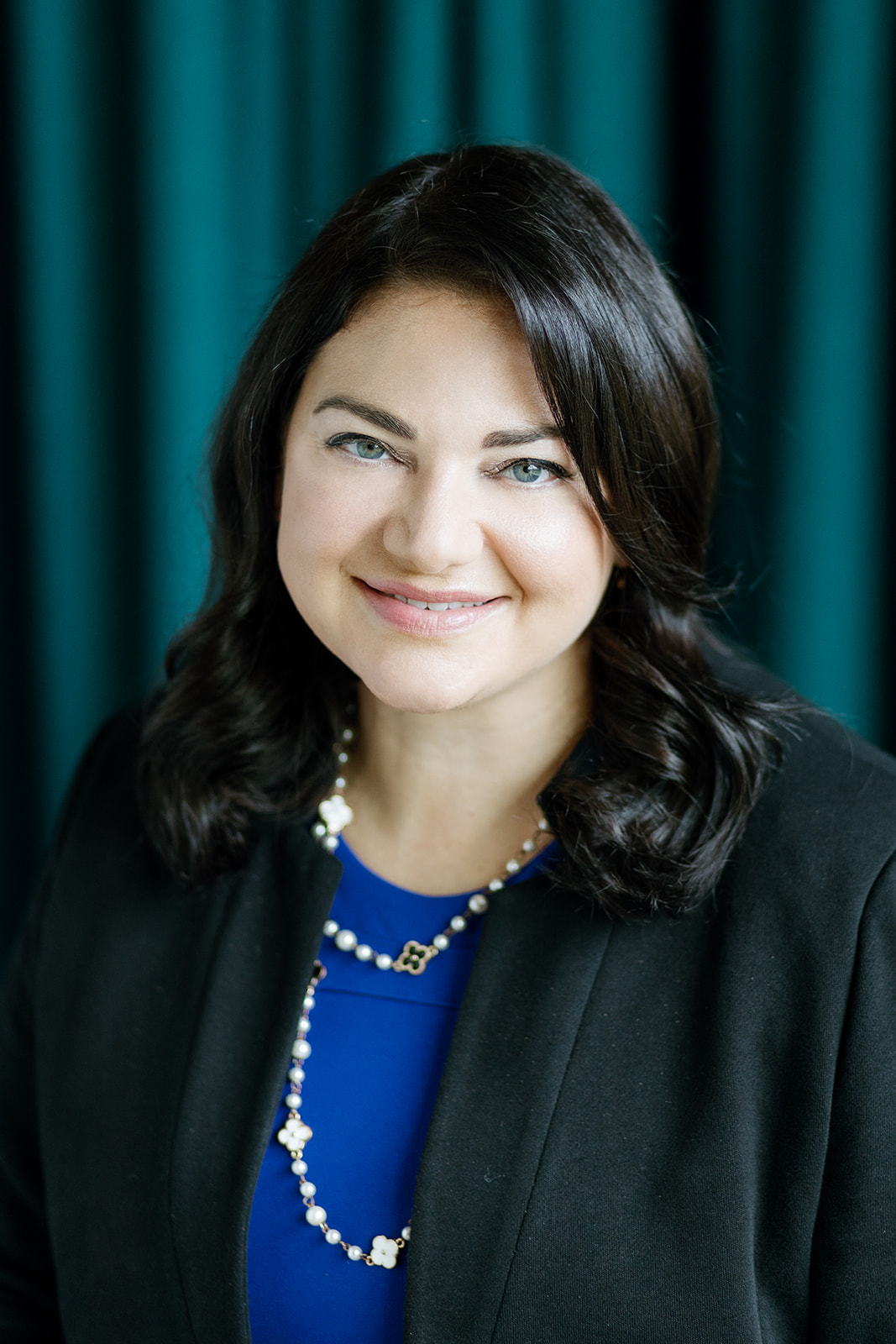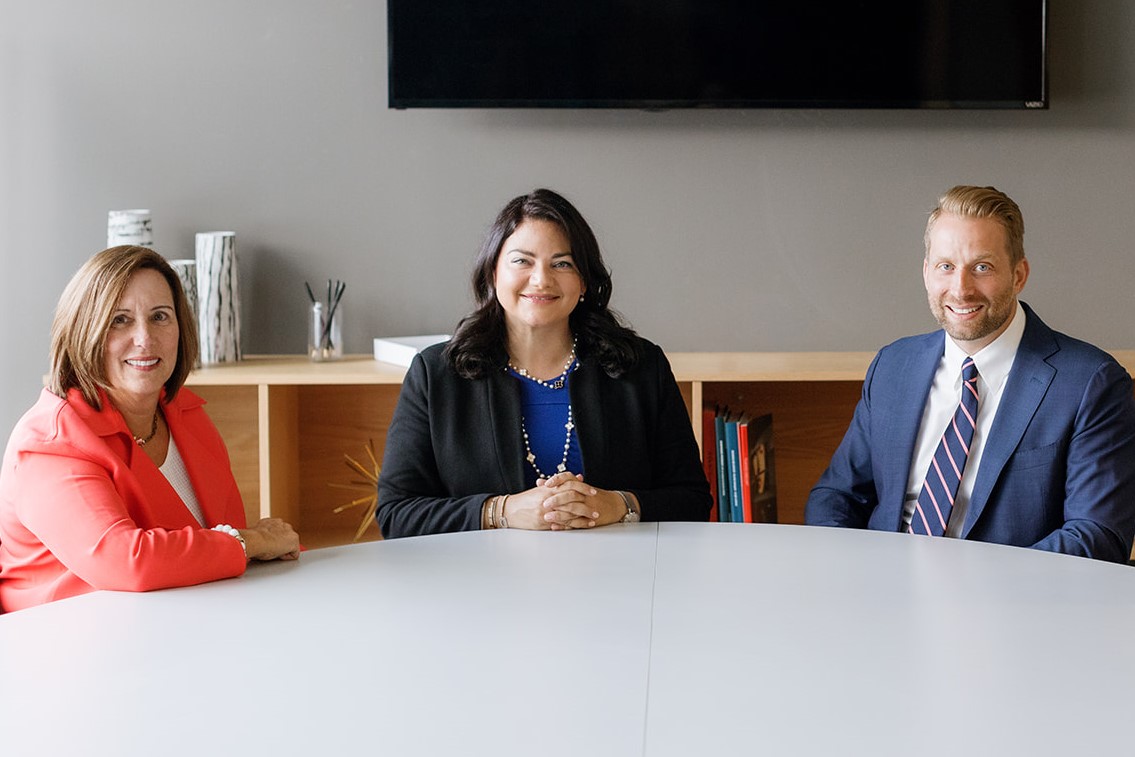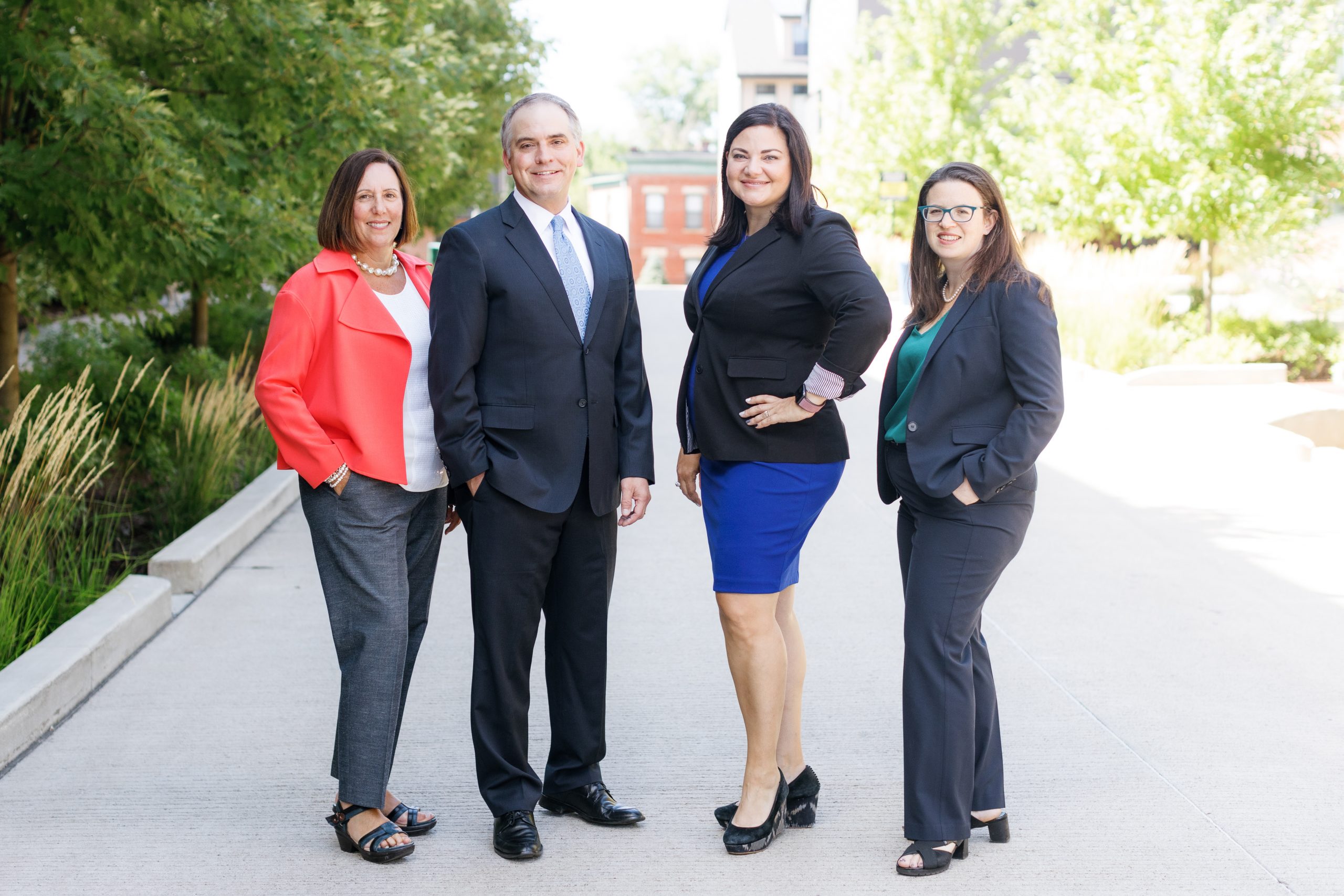It is refreshingly timely to hear Beverly Block’s story as we enter Women’s History Month with a new administration characterized by diversity and with the first female vice president in US history. Beverly is not a politician, she’s a lawyer. And it seems finding female leaders in the country’s top law firms is still more challenging than finding female leaders inside DC’s beltway. Beverly is making it her mission to change that.
Born and raised in Detroit, Beverly moved to Pittsburgh to join her then boyfriend, now husband, who had no intention whatsoever of leaving town. “I came to Pittsburgh kicking and screaming, but in a very short time I realized why he loved it so much. Once I started working and we started building our lives together, I really didn’t want to be anywhere else.”
Right out of law school, Beverly joined a large international law firm, Dewey & LeBeouf, when the firm was the outside general counsel for Alcoa. This lasted through 2006, when Alcoa decided to move its business to another international law firm. From there, Beverly had the great privilege to work as a clerk for a federal judge, which fed her passion to grow as a litigator. “I realized through that experience that I didn’t want to sit on the judge’s side of the bench; I wanted to be on the other side, advocating for my clients in court.” After her clerkship, she joined a regional law firm, Sherrard German Kelly, where she worked for eleven years. To Beverly, SGK is a firm steeped in tradition and there were a lot of wonderful things about that. She grew tremendously there and credits SGK with providing her with an environment to build a strong client base, among remarkable attorneys and staff. But she has always had an entrepreneurial spirit that kept her wondering if there was a different way to do this. “I’m sure management at all of my former workplaces would call me outspoken. I will admit that my outspokenness coupled with an entrepreneurial spirit kept me wondering if I’d ever fit into a traditional environment. The statistics around lawyers and gender paint a clear picture – individuals other than white males have a hard time getting into leadership positions in law firms. And it’s particularly pronounced in cities like Pittsburgh, which celebrate tradition.”

Much as women have come a long way to crack the glass ceiling from corporate America to public office, the reality is there’s still a long way to go. And this certainly applies to the legal field. A 2019 study commissioned by the American Bar Association revealed that women constitute only 20% of equity partners in law firms. That percentage is lower, likely around 15%, in Pittsburgh. “As I started to have children, the uphill battle became more pronounced. I began to better understand why success can be more elusive for women in this profession. Financial success in the private practice of law is directly linked to how many hours a person can bill in a day. There is a premium placed on billable hours, which disincentivizes efficiency, well-roundedness, and authenticity. Instead, attorneys are incented to sit behind a computer for hours on end, close the office door and bill the heck out of a situation. This leads to a very homogenous group of people. To me, that is not what the practice of law is about. The practice of law is about helping your clients solve problems. I can solve problems, relate to my clients, dig deeply into their business when I have the time and flexibility to invest in who they are as individuals, to see what their businesses are really doing, and to learn their short and long-term goals without the constraints of billing software clicking away in the background. If law firm leadership remains focused on how many hours I can put on my timesheets, I’m not going to be able to grow to be the type of professional that I want to be and the type of professional my clients need me to be. So, I decided to study the business of the practice of law and learn about the drivers that make law firms successful.”
Big law firms, like big corporations, carry immense overhead costs because there is a premium placed in large fancy offices, golf outings with clients, year-round tickets to the theater and sports events, etc. “To me, big, fancy offices are something of the past, and I felt this way well before Covid hit. I would ask the folks I was building relationships with, ‘what’s most important to you?’ And they would tell me ‘being able to call you and get quick and practical solutions to our problems.’ It certainly wasn’t hosting them in a fancy office. So, I was ready to make a change, and it focused on decreased overhead and incentivizing individualized well roundedness.”
Setting up shop in an affordable office space and investing further in better understanding client needs was half of the equation and what often makes boutique shops effective in finding niches the big players can’t cover. But Beverly’s mission went far beyond, as she wanted to set up a more inspiring and accommodating work arrangement for herself and others. “Approximately 50% of US employees are covered by the Family Medical Leave Act, and less than 75% of employees are paid during that leave. This means that not only do many women not get time off when they have babies, but most of them don’t get paid time off.” Over the past ten years, Beverly has worked to encourage local law firms to adopt paid family leave policies and incorporate measures to encourage women to ease back into the practice after parental leave. “Firm leadership must recognize that incorporating these policies are vital stepping stones to retaining and promoting female legal talent.” So many employers, including countless local law firms, do not prioritize either of these measures. “While educating others about these issues is deeply important work, I felt like I needed to go one step further and create a law firm where these values are engrained into the culture of the firm.”

During the process of creating her firm, many felt that the idea of a 40-year-old mother of three starting a law firm from the ground up seemed as crazy as it was frightful. The fact is most people aren’t successful launching their own law firms and often fold and end up going back to a larger firm several months later. But Beverly decided to take the law into her own hands, so to speak. “In the end, I decided to take the leap and build a firm based on a different set of values. At our core, we are in the client service industry, so instead of asking, ‘what works for me,’ and how many hours can I bill in a week, or a month or a year, we must work every day to deliver customized legal service that works within our clients’ business structure. It’s incumbent on us as lawyers to say to our clients ‘We are here as your business partner, not just as your lawyer. What is important to you? How can we best advocate for you and what you’re trying to accomplish?’ Our firm is based on those priorities without being slaves to the billable hour. And without a doubt, being a woman and a mother of three make me a better listener, a strong multi-tasker, and an all-around highly capable attorney.”
Beverly’s bet is paying off. As Pittsburgh’s tech scene thrives with growing startups with general counsel needs and no appetite for fat overhead leading to higher hourly rates, Beverly’s firm, Block & Associates, is doing just that. “We are the firm you call when you want a partner for your business. We’re not just engaged in one matter, it’s more of a holistic relationship. We have been privileged to represent many tech startups and early-stage companies who are looking not just for a lawyer to defend them in a lawsuit, but a lawyer who is going to stand beside them from day one. In those early meetings where they’re looking at their initial funding, how many employees they should have vs. independent contractors, those really early-stage questions, we make clear that we want to grow together, which has been really wonderful. I’m a small business; I’m growing a business right alongside my clients. It’s such a collaborative and rewarding opportunity to be on that journey together. When Covid hit we were all in a holding pattern. I wasn’t just advising my clients based on reading articles in the Wall Street Journal, I’m advising them because I’m living it and I have to dig into what Congress is passing and what the PPP loan forgiveness rules are because I’m going to need it for myself.”
The tech growth has been a blessing for her business, and as she sees it, a blessing for the entire city, one that didn’t seem quite fathomable only a few years back. “I think it’s fantastic, I think the city deserves it, and it makes sense. We have these amazing universities. What has been remarkable about the tech space in Pittsburgh is that we have these universities graduating these impressive individuals in countless fields and we’ve built an infrastructure to support those students after graduation. The innovation is great, it’s the right thing for Pittsburgh. If you asked me the same question ten years ago, I would have said ‘that’s never going to happen.”
So, for someone who moved to town kicking and screaming 20 years ago, Beverly has certainly found a new home here. “I’ve done a total 180. I am a poster child for Pittsburgh. I love everything about Pittsburgh. Living where we live (Squirrel Hill) in a very walkable part of town, I’m raising my children in a place where they can be independent, walk to school, meet their friends for ice cream, bike uptown – that’s how I was raised. I live equidistant between Schenley Park and Frick Park and I explore those parks a lot and I try to remember to practice gratitude. I find myself at the intersection of luck, privilege, and hard work. I pinch myself. It’s where I want to be.”
One might argue Beverly should pinch herself harder for what she’s accomplishing professionally. Building a refreshed and challenging model of a law firm in a city and in an industry that both show strong respect for tradition, while successfully growing alongside her clients. What Beverly has accomplished is no small feat. And an inspiring story for many to take matters into their own hands.


